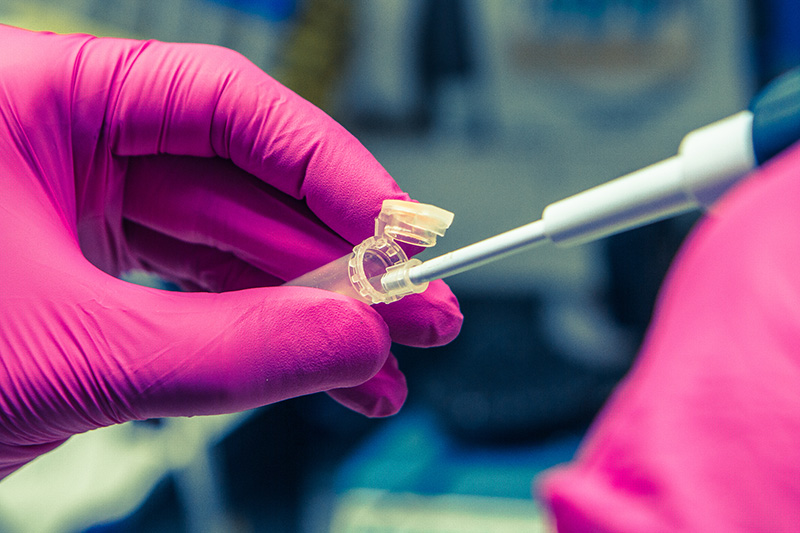New research on Breast Cancer

The efforts to find a treatment for breast cancer are ongoing. Researchers are developing new drugs and treatment for cancer. Research done in the labs if found successful are then taken to the clinical trials for further confirmation of the drug or any treatment therapy.
Some latest research carried out for breast cancer is as below:
Monoclonal antibodies developed in the lab:
They are being developed to work alone or with chemotherapy and radiation therapy to find and attack cancer cells. Our bodies do not recognize cancer cells as foreign body; this therapy aims to develop certain antibodies which start to recognize cancer cells as foreign cells and starts fighting with them. Trastuzumab (Herceptin) is an example of an FDA-approved monoclonal antibody.
Anti–angiogenesis drugs:
Anti–angiogenesis drugs block angiogenesis (the growth of new blood vessels). In this research cancer cells are devoid the supply of blood vessels, which will not allow them to grow further. This research aims to develop such drugs which can restrict the supply of blood vessels especially in metastatic breast cancer (MBC).
Immunotherapy:
Immunotherapy aims to develop the body’s immune system to fight cancer cells. An example is cancer vaccines. Vaccines may be made up of cancer cells or parts of cancer cells. These cells stimulate the body’s natural defense to help attack and kill cancer cells. They are currently under study for MBC.
Food and cancer Research:
A study conducted at Loma Lind University, looked at several dietary items and the risk of prostate, colorectal, and breast cancer. This research revealed that a vegetarian diet was associated with a slightly lower cancer risk (particularly in gastrointestinal cancers), and a vegan diet was associated with a lower risk of cancers of female organs and prostate cancer. A lower rate of breast cancer was found when high amounts of foods such as soy isoflavones were consumed. The research also revealed that cooked tomatoes were associated with lower prostate cancer risk. Studies have revealed that high fibre diet minimizes the risk of bowel cancer. Foods high in fibre include fruits, vegetables, pulses and wholegrain foods, the best source is whole grains. Scientists are trying to find the reason for consuming high fibre diet and less risk of cancer.
Salt-preserved foods and cancer:
Salt-preserved foods have found to increase the risk of stomach cancer. Some salt-preserved foods are pickled vegetables, salted fish and cured meats. Salt could increase stomach cancer risk by damaging the stomach lining, which causes inflammation or the stomach lining becomes sensitive to cancer causing chemicals. Salt may also react with stomach bug called Helicobacter pylori that is linked to both stomach ulcers and stomach cancer.


